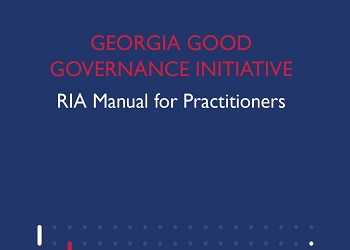- Details
Quality policymaking benefits from a process that is predictable, transparent, participatory, and accountable. This type of process helps make decisions that are legitimate, justified, effective, and proportionate.
It is important to note immediately that regulation is only one possible option available for governmental intervention in society and the economy (see Box 1 for a definition of regulation). This view is fully incorporated in article 30 of ordinance No. 35, according to which:
• If, on the basis of a draft RIA report, it has been established that the best option to resolve a problem/issue is legislative regulation, an authorized official of the initiating agency shall make a decision on including the issue in the plan for the preparation of draft laws by the agency;
Regulatory Impact Assessment on High Mountainous Region Designation of Energy Development and Access
- Details
The Law of Georgia on Energy and Water Supply, adopted in December 2019, envisages certain general provisions concerning vulnerable customers. The Law states that the Georgian government and local government bodies, in consultation with other interested parties, shall develop special programs/measures/benefits to ensure the supply of electricity and natural gas for vulnerable customers. However, the provisions of the law do not specify the form of the support programs or the measures to be taken in protecting such customers.
Currently, from a policy perspective, there is neither a clear general long-term energy strategy nor individual strategies for municipalities. Moreover, there is no uniform policy to ensure energy access to the high mountainous regions, and certain mountainous municipalities are treated differently than others. For instance, residents permanently living in some villages of the Kazbegi and Dusheti municipalities received 700m3 of free gas per month (between 1 December 2019 and 15 May 2020 and from 15 October 2020 to 30 November 2020) (the State Law of Georgia, 2020). Consequently, such policies have to take into account the local context, fairness, and the equal treatment of each mountainous municipality.


